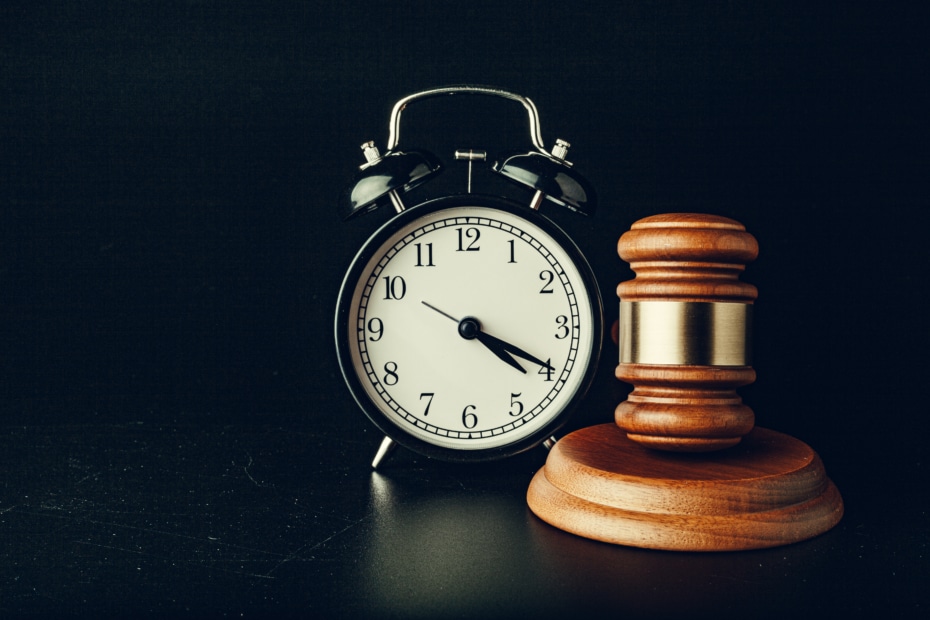Call Us At 519.672.5666
Insights & Articles
Extension of Limitation Periods Due to COVID – It May Not Be Too Late to Start a Personal Injury Claim

Background:
The world ground to a halt in March 2020 with the declaration of the COVID-19 pandemic. Due to court services closures, it became difficult for personal injury victims to bring or amend claims on a timely basis.
On March 20, 2020, Ontario enacted O. Reg. 73/20 and suspended limitation periods retroactively from March 16, 2020.[1] This legislation was in place for 183 days (roughly 6 months), until the province began to re-open on September 14, 2020.
Many wondered what this suspension meant for limitation periods. It was unclear whether the additional 183 days to file a claim remained in effect once the legislation was revoked.[2]
It was not until June of 2021 that the proper interpretation of the above legislation was ruled in McAuley v Canada Post Corporation.[3]
Facts:
In McAuley, the plaintiff broke his ankle in a slip and fall outside of a Canada Post office on December 20, 2017. Initially, he named the Town of Huntsville (“Huntsville”) as the sole defendant. Huntsville gave no indication that any other party was responsible for winter maintenance around the post office.
The plaintiff put Canada Post Corporation (“CPC”) on notice. On November 30, 2018, CPC’s insurer advised the plaintiff that CPC’s property manager was Jones Lang LaSalle (“JLL”). The plaintiff then discovered that JLL subcontracted its winter maintenance to “Heritage”, and Heritage further subcontracted to “Always Handy”.
The plaintiff started a second action against CPC. CPC issued a third party claim against Huntsville and Heritage, and Heritage issued a fourth party claim against JLL and Always Handy.
The parties were then interrupted by the shutdown of court services due to COVID-19.
On January 28, 2021, the plaintiff brought a motion to add Huntsville, Heritage, JLL and Always Handy as defendants in the claim against CPC. Importantly, this was over three years from the date of the accident, but less than two years from when the plaintiff discovered the other parties.
Heritage and Always Handy argued that the two-year limitation period to claim against them had passed.
The Law:
Under the Rules of Civil Procedure, plaintiffs may amend their claims to add a party, unless the plaintiff lacks a legally tenable claim against that party. If the limitation period for the claim has expired, there is no longer a legally tenable claim.
The “basic” limitation period requires that plaintiffs bring claims within two years from the date the claim was discovered. Usually, this is on the day of the injury. If the plaintiff fails to meet this timeline, the claim is “statute barred” and cannot proceed.
However, if the plaintiff can show that they could not have discovered the proper party to sue on the day of the injury, even with reasonable diligence, then the limitation period will run from the date that the plaintiff would have reasonably discovered the claim.
The addition of O. Reg. 73/20 further complicated the matter, as it was unclear whether the additional 183 days to file a claim were still counted after the legislation was revoked.
Decision:
The court was tasked with determining the meaning of O. Reg. 73/20. Justice Boswell held that despite the legislation being revoked, the effect of this legislation was to extend any running limitation period by 183 days (roughly six months). Therefore, the time period from March 16 to September 14, 2020 does not get counted in the calculation of the limitation period.[4]
As such, the plaintiff’s motion would succeed provided he could show that he could not reasonably have discovered his claim against Heritage and Always Handy until on or after July 29, 2018 (2 years + 183 days before bringing the motion).
However, the court ultimately found that the plaintiff failed to prove this, and instead found that the reasonable date of discovery was April 30, 2018.[5] As such, the adjusted limitation period expired prior to the initiation of the motion. The plaintiff’s claims against Heritage and Always Handy were statute barred.
Takeaways from McAuley:
Whether you are meeting with a lawyer for the first time, or a claim has already been started, it is important to provide all the details to your lawyer to assist in their investigation. This will enable them to properly identify all potential defendants. Failure to name the proper parties to a lawsuit may limit your financial recovery as an accident victim.
If you were injured on or before September 14, 2020, you may still have time to bring a claim, even if more than 2 years has passed. It is important to contact a lawyer right away, so you don’t miss your chance. Contact a Personal Injury lawyer at McKenzie Lake Lawyers LLP by calling (519) 672-5666.
This article was written by Personal Injury Lawyer Sarah Kirshin-Neilans and Articling Student Aaron Ender.
[1] On March 20, 2020 the Ontario government made an order under s. 7.1(2) of the Emergency Management and Civil Protection Act, R.S.O. 1990, c. E.9, specifically Reg. 73/20: LIMITATION PERIODS, which suspended all limitation periods under any statute, regulation, rule, by-law or order of the Government of Ontario, retroactive to March 16, 2020.
[2] Even the Attorney General brought an application to seek a judicial interpretation of the legislation See: Attorney General for Ontario v. Persons Unknown, 2020 ONSC 6974.
[3] 2021 ONSC 4528 [McAuley].
[4] Ibid at paras 42-43.
[5] Ibid at paras 58-76.

